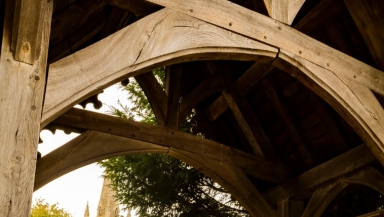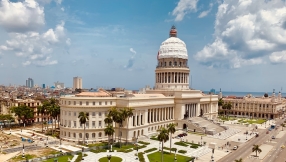
The pandemic may have led to a surge in a digital worship but affection for church buildings remains strong, fresh research reveals.
A new study by National Churches Trust (NCT) found that a majority of people in the UK (80%) agree that digital services have not reduced the need for church buildings.
Participants in the study came from across England, Scotland, Wales and Northern Ireland.
One respondent commented, "Our congregation has increased with the use of online services as they make access easier for those who find it difficult to attend services in church buildings, but I cannot stress enough how joyful, those of us who can attend services in our local churches again, are to meet together."
Most people (92%) still see the main purpose of church buildings as a place of worship, followed by nearly three quarters (72%) who see them as community hubs.
Most of the 1,250 people involved in the study agreed that they are a key part of national heritage (71%).
NCT Vice President Sir Michael Palin said: "The UK has over 39,000 church buildings. The restrictions of Covid-19, resulting in reduced funding and fewer worshippers, has clouded the future for many of them.
"Yet churches remain a vital and much-loved part of the UK's history and heritage and we can't let them fall into neglect and disuse."
Church buildings were overwhelmingly seen as an asset (89%) rather than a burden (10%) by respondents, but the consultation also revealed concerns about their financing.
There are over 900 churches on Historic England's 'Heritage at Risk Register' and the Church of England alone puts the cost of "necessary" repairs across its 16,000 churches at £1bn over the next five years.
The consultation asked respondents who should fund the upkeep of the nation's ageing church buildings. Over three quarters (79%) said the primary responsibility for funding should rest with heritage bodies like the National Lottery Heritage Fund and local church congregations.
Nearly three quarters (73%) said that charitable trusts and foundations should shoulder financial responsibility.
Only half felt it should lie with Christian denominations. Just over half (54%) said that the central government or devolved administrations should help with costs.
Where churches are threatened with closure, there was strong support for these buildings becoming a community asset (89%), but 79% wanted them to continue as a place of worship.
One respondent expressed frustration at misperceptions around church finances.
"Non-churchgoers expect the church to be there and have no concern or knowledge at all of the cost of (for example) installing toilets, providing adequate disabled access...the inevitable structural repairs...Often I find that people think we (the church in general) are quite rich and that the local church is subsidized by the central church and/or by the government," they said.
Another said that denominations should help their parish churches to pay for costly maintenance and repairs: "The Church Commissioners should take full responsibility for the upkeep of Grade One listed churches, it's unfair to expect a small community to have to raise money for major works."
NCT chief executive Claire Walker said the study showed that "people really value church buildings".
"That's because they are the ultimate all-purpose building, available for everyone to use. Churches are places for worship and reflection, vitally needed community centres, and are packed with history and heritage," she said.
She said that more funding for the upkeep of historic churches was "urgently needed".
"I'd like to thank everybody who took part in our 'The Future of the UK's Church Buildings' consultation," she said.
"We will use the findings and the ideas generated to continue to discuss with Government and our partners in the church and heritage sectors how best to keep as many churches as possible open and being used to benefit local communities."
She added, "The future of the UK's churches is in our hands. We need to ensure that they are valued and saved for everyday use, now and in the future, before it's too late."













